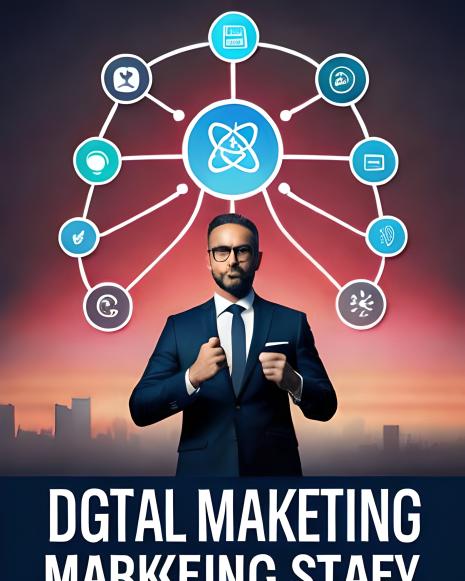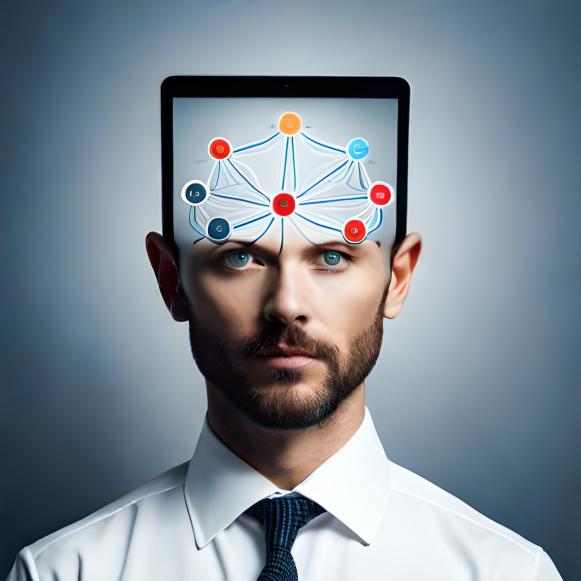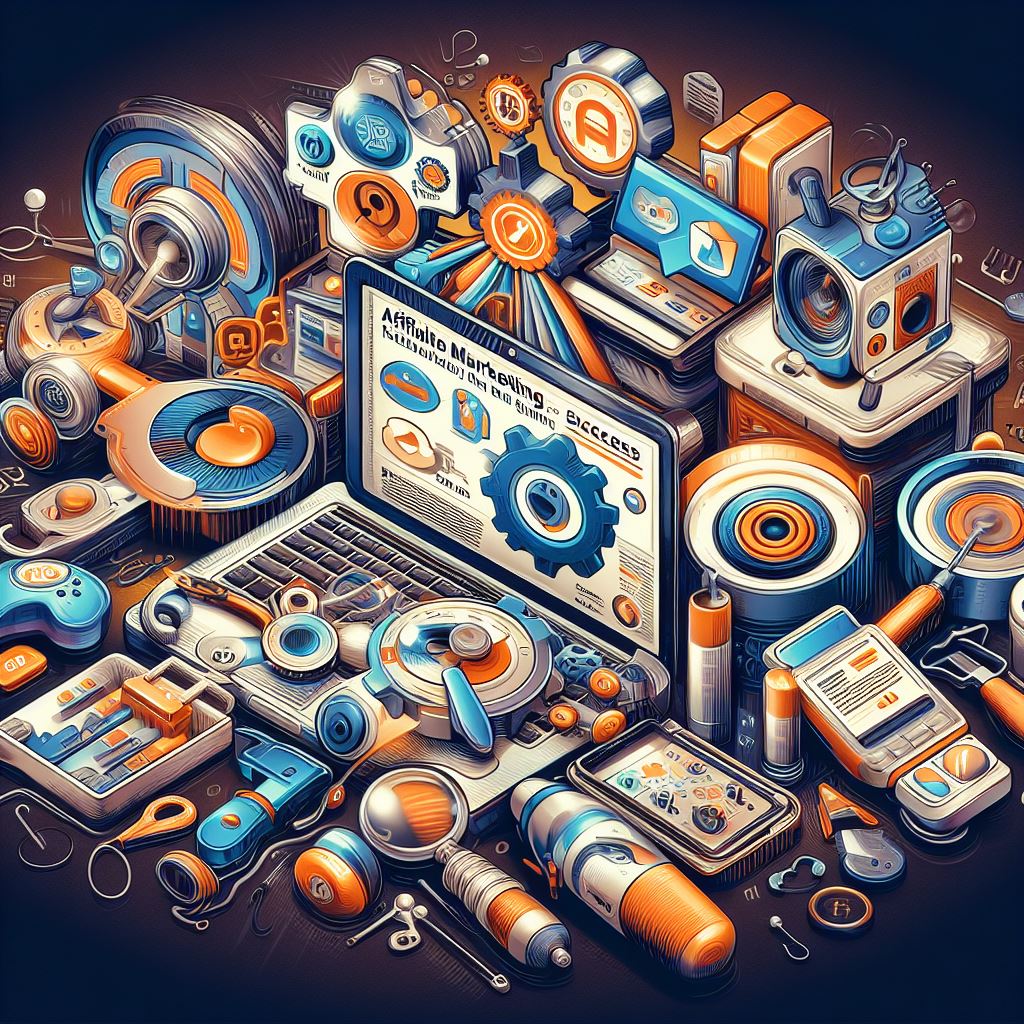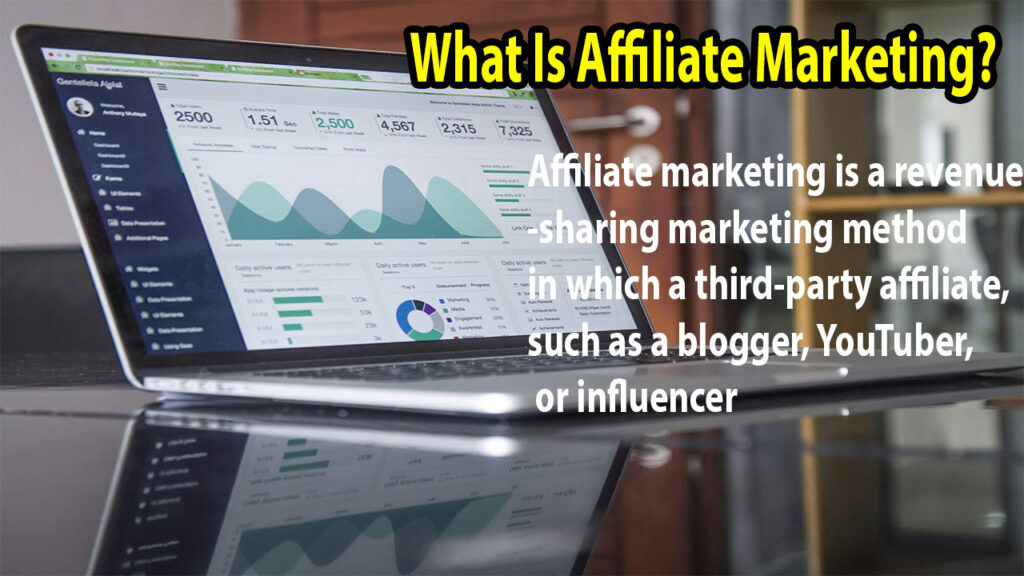Introduction
Digital marketing has evolved significantly over the years, and staying up-to-date with the latest trends is crucial for businesses looking to succeed in today’s competitive landscape. In 2023, digital marketing continues to be at the forefront of business strategies, and staying ahead of the curve is essential. In this comprehensive guide, we’ll explore the best trends in digital marketing for 2023 and how they can benefit your business.

- Digital Marketing Strategies for 2023 In 2023, digital marketing strategies have become more diverse and sophisticated than ever before. The traditional methods of advertising have given way to more targeted and data-driven approaches. It’s clear that digital marketing is not just an option but a necessity for businesses of all sizes.
- AI-Powered Marketing Artificial intelligence (AI) has completely revolutionized the field of digital marketing. AI algorithms can analyze vast amounts of data to provide valuable insights into consumer behavior. Chatbots, for example, powered by AI, can offer personalized interactions with customers, improving user experience and increasing conversion rates.
- Content Marketing Dominance The king of digital marketing is still content. For businesses to draw in and keep customers, they must have high-quality, useful, and entertaining content. In 2023, businesses that prioritize content marketing will have a competitive edge. The use of digital marketing techniques to promote this content is vital for its success.
- Voice Search Optimization With the increasing popularity of voice-activated devices like smart speakers and voice assistants, voice search optimization is becoming more critical. Digital marketing strategies should include optimizing content for voice search to ensure visibility in this growing market.
- Video Marketing Expansion Video marketing has been a powerful tool in digital marketing for years, but it continues to evolve. In 2023, businesses will need to invest in high-quality video content, live streaming, and interactive videos to engage their audience effectively.
- Social Media Advertising Social media platforms are essential for digital marketing in 2023. With billions of users worldwide, platforms like Facebook, Instagram, Twitter, and LinkedIn offer a vast audience for businesses to target through advertising and organic content.
- Influencer Marketing Influencer marketing continues to be a trend in digital marketing. Collaborating with influencers can help brands reach new audiences authentically. Finding the right influencers whose values align with your brand is key to success in this arena.
- Personalization at Scale Personalization is no longer a novelty; it’s an expectation. Digital marketing strategies in 2023 must include personalized content, recommendations, and experiences to cater to individual consumer preferences.
- Data Privacy and Compliance With increasing concerns about data privacy, businesses must prioritize compliance with regulations like GDPR and CCPA. Customers are more likely to trust and engage with brands that respect their privacy.
- Augmented Reality (AR) and Virtual Reality (VR) AR and VR technologies are gaining traction in digital marketing. Brands can use AR to provide interactive experiences, and VR can immerse customers in a virtual world, making marketing campaigns more engaging and memorable.
- Sustainability in Marketing Consumers are increasingly eco-conscious, and brands that emphasize sustainability in their digital marketing efforts can attract a loyal customer base. Green initiatives, eco-friendly products, and responsible advertising can all contribute to a positive brand image.
- Blockchain in Digital Marketing Blockchain technology can enhance transparency and security in digital marketing. It can be used for ad verification, ensuring that ads reach their intended audience, and reducing ad fraud.

What are some examples of AI tools in digital marketing?
AI (Artificial Intelligence) has become an integral part of digital marketing, revolutionizing how businesses analyze data, automate tasks, and personalize user experiences. Here are some examples of AI tools in digital marketing:

- Chatbots and Virtual Assistants:Chatbots and virtual assistants use AI to provide real-time customer support, answer inquiries, and guide users through websites or applications. They can engage with customers 24/7, improving user experience and freeing up human resources for more complex tasks.
- Predictive Analytics:AI-driven predictive analytics tools use historical data to forecast future trends, customer behavior, and sales patterns. Marketers can use these insights to make data-driven decisions, optimize campaigns, and allocate resources effectively.
- Personalization Engines:AI-powered personalization engines analyze user data to deliver tailored content and product recommendations. This enhances user engagement, boosts conversion rates, and increases customer loyalty. Companies like Amazon and Netflix are known for their effective use of personalization.
- Content Generation:AI tools can generate content like product descriptions, blog posts, and social media updates. While human oversight is often required, AI can save time and effort by creating initial drafts and suggestions.
- Email Marketing Optimization:AI tools can optimize email marketing campaigns by segmenting audiences, determining the best send times, and crafting subject lines and content that are more likely to resonate with recipients.
- Programmatic Advertising:Programmatic advertising platforms use AI to automate the buying of digital ads in real-time. They analyze user data and behavior to deliver highly targeted and relevant ads across various channels, maximizing ad spend efficiency.
- Voice Search Optimization:With the rise of voice-activated devices, AI helps in optimizing content for voice search. It analyzes conversational queries to ensure websites and content rank well in voice search results.
- Social Media Management:By scheduling posts, examining interaction analytics, and even coming up with ideas for social media material, AI systems can help with social media administration. They can also keep an eye on mood and discourse on social media.
- SEO Tools:AI-powered SEO tools help businesses improve their search engine rankings. They can identify keywords, analyze competitors, and provide on-page optimization recommendations for websites.
- Video Marketing:AI can enhance video marketing efforts by providing automated video editing, optimizing video content for search engines, and even generating video captions or subtitles.
- Data Analytics and Reporting:AI-driven analytics tools can process large datasets quickly and provide actionable insights. They can identify trends, anomalies, and opportunities for optimization, allowing marketers to make informed decisions.
- Ad Campaign Optimization:AI tools can automatically optimize digital ad campaigns by adjusting bidding strategies, targeting parameters, and creative elements in real-time to achieve better ROI.
- Content Curation:AI can curate content from various sources based on user preferences, ensuring that businesses can share relevant and trending content with their audience.
- Customer Segmentation:AI can segment customers based on their behavior, demographics, and preferences, allowing businesses to create highly targeted marketing campaigns that resonate with specific audience segments.
These examples demonstrate the diverse ways AI is transforming digital marketing, enabling businesses to deliver more personalized, efficient, and effective marketing strategies. Incorporating AI tools into your digital marketing efforts can help you stay competitive in today’s fast-paced digital landscape.
What are the benefits of using AI in digital marketing?
Using AI (Artificial Intelligence) in digital marketing offers a wide range of benefits that can significantly impact the effectiveness and efficiency of marketing campaigns. Here are some key advantages of leveraging AI in digital marketing:

- Enhanced Personalization:AI allows businesses to create highly personalized marketing experiences for individual customers. By analyzing user data and behavior, AI can deliver tailored content, product recommendations, and offers, increasing customer engagement and conversions.
- Improved Customer Insights:AI tools can analyze vast amounts of data to provide in-depth insights into customer behavior and preferences. This data-driven approach helps businesses better understand their audience, allowing for more informed marketing decisions.
- Efficient Resource Allocation:AI can automate routine tasks such as data analysis, email marketing, and ad optimization. This frees up human resources to focus on more strategic and creative aspects of marketing, resulting in cost savings and improved efficiency.
- Real-time Marketing:AI-powered analytics can process data in real-time, enabling marketers to respond swiftly to changing market conditions and customer interactions. This agility is particularly valuable in fast-paced digital environments.
- Optimized Advertising Campaigns:AI can improve the performance of digital advertising campaigns by automatically adjusting bidding strategies, targeting parameters, and ad creatives based on real-time data. This leads to higher ROI and more cost-effective advertising.
- Enhanced Customer Support:Artificial intelligence-powered chatbots and virtual assistants can offer round-the-clock customer service, rapidly addressing frequent questions and problems. This raises client happiness and may encourage greater loyalty.
- Improved Content Creation:AI tools can assist in generating content ideas, optimizing content for SEO, and even creating initial drafts of articles or product descriptions. This speeds up content production and ensures consistency.
- Predictive Analytics:AI-driven predictive analytics can forecast future trends and customer behavior. Marketers can use these insights to proactively adjust their strategies and stay ahead of the competition.
- Cost Reduction:Automation using AI can lower labour expenses for jobs like data processing, reporting, and manually managing advertising campaigns. This can save firms a lot of money over time on expenses.
- Enhanced User Experience:AI-powered personalization and recommendation engines can create smoother and more enjoyable user experiences. Customers receive content and product suggestions that align with their interests, leading to higher satisfaction.
- Better ROI Measurement:AI tools provide detailed and accurate performance metrics for marketing campaigns. This allows marketers to measure ROI more effectively and make data-driven decisions to optimize their strategies.
- Adherence to Data Privacy Regulations:AI can help ensure compliance with data privacy regulations like GDPR and CCPA by automating data handling processes, reducing the risk of data breaches, and providing transparency to customers.
- Scalability:AI-driven processes are highly scalable, making it easier for businesses to expand their digital marketing efforts without exponentially increasing their workload.
In summary, AI in digital marketing offers businesses the ability to deliver more personalized, data-driven, and efficient marketing campaigns. It enables marketers to make informed decisions, allocate resources effectively, and ultimately improve the overall effectiveness of their marketing strategies. As AI continues to advance, its role in digital marketing is expected to become even more significant.
What are some challenges of using AI in digital marketing?
While using AI (Artificial Intelligence) in digital marketing offers numerous benefits, it also presents several challenges and considerations that businesses need to address. Here are some of the key challenges associated with implementing AI in digital marketing:
- Cost of Implementation:Developing and integrating AI solutions into digital marketing processes can be expensive. Small and medium-sized businesses may find it challenging to allocate the necessary resources for AI adoption.
- Data Quality and Privacy:AI heavily relies on data, and ensuring the quality, accuracy, and privacy of data can be a significant challenge. Businesses must navigate data collection, storage, and usage while complying with regulations like GDPR and CCPA.
- Data Security:AI systems can be vulnerable to data breaches and cyberattacks. Safeguarding AI-powered tools and the data they handle is crucial to protect sensitive customer information.
- Integration Complexity:Integrating AI into existing marketing technology stacks can be complex. Compatibility issues, training requirements, and potential disruptions to current workflows need careful consideration.
- Talent Shortage:There’s a shortage of AI talent in the job market, which can make it difficult for businesses to find and hire professionals with the necessary expertise to develop and manage AI-powered marketing initiatives.
- Algorithm Bias:AI algorithms can inherit biases present in training data, potentially leading to biased decisions in marketing campaigns. Ensuring fairness and avoiding discrimination is a growing concern.
- Overreliance on AI:While AI can automate many tasks, it’s essential not to over-rely on it. Human creativity, intuition, and strategic thinking remain crucial for crafting effective marketing strategies.
- Complexity of AI Tools:Some AI tools can be complex to understand and operate, leading to a learning curve for marketers and potential misconfiguration of AI systems.
- Lack of Transparency:AI decision-making processes can be opaque, making it difficult to understand why a particular decision or recommendation was made. This lack of transparency can be a challenge for marketers who need to justify their actions.
- Ethical Concerns:The use of AI in marketing raises ethical questions, particularly concerning user privacy, consent, and the potential for manipulative practices. Striking the right balance between personalization and intrusion is a challenge.
- Maintenance and Updates:AI models and algorithms require ongoing maintenance and updates to remain effective. Keeping up with these changes and ensuring they align with evolving marketing goals can be a challenge.
- Scalability:Scaling AI-powered marketing initiatives can be challenging. As businesses grow, they may need to adapt and expand their AI capabilities to meet increased demands.
- Measuring ROI:Determining the ROI (Return on Investment) of AI implementations in marketing can be challenging. Measuring the impact of AI on revenue and other key performance indicators requires careful tracking and analysis.
- Customer Trust:Building and maintaining customer trust when using AI in marketing is critical. Consumers may be skeptical of AI-driven personalization and data usage, so transparency and ethical practices are essential.
Despite these challenges, many businesses find that the benefits of AI in digital marketing far outweigh the drawbacks. Addressing these challenges through careful planning, compliance, and ongoing monitoring is essential to maximize the value of AI in marketing efforts.
How can I overcome the challenges of using AI in digital marketing?
Overcoming the challenges of using AI in digital marketing requires a strategic and proactive approach. Here are some strategies and best practices to help you navigate and address these challenges effectively:
- Define Clear Objectives:Start by setting clear goals and objectives for your AI-powered digital marketing initiatives. Understanding what you aim to achieve will guide your AI implementation strategy.
- Invest in Data Quality and Privacy:Ensure the quality and privacy of your data by implementing robust data collection, storage, and security practices. Comply with relevant data privacy regulations and seek consent when collecting user data.
- Data Security:Protect your AI systems and data with strong cybersecurity measures. Regularly update and patch software to address vulnerabilities, and consider investing in advanced threat detection and prevention solutions.
- Hiring and Training:Invest in talent acquisition and development. Hire or train professionals with AI expertise to manage and optimize AI-powered marketing campaigns effectively.
- Algorithm Bias Mitigation:Regularly audit and test your AI algorithms for bias. Implement fairness-aware AI techniques to reduce bias in decision-making processes.
- Transparency:Strive for transparency in AI-powered marketing. Clearly communicate to customers how AI is used, what data is collected, and how it benefits them. Provide an opt-out option for those concerned about data usage.
- Human Oversight:Maintain human control and oversight of AI systems. While AI automates jobs, humans need still keep an eye on and tweak algorithms to fit marketing objectives.
- Education and Training:Ensure your marketing team understands how to use AI tools effectively. Provide training and resources to help them make the most of AI-powered solutions.
- Regular Audits and Updates:Continuously audit and update your AI models and algorithms. Keep them aligned with changing business needs and customer preferences.
- Ethical Guidelines:Develop and adhere to ethical guidelines for AI use in marketing. Consider creating an ethics committee to review and approve AI-driven campaigns.
- Consent and Trust:Build and maintain customer trust by seeking consent for data collection, using transparent practices, and delivering value through personalized experiences.
- Scalability Planning:Design your AI infrastructure with scalability in mind. Ensure that it can handle increased data volumes and user interactions as your business grows.
- Measurement and ROI Tracking:Implement robust tracking and measurement tools to assess the impact of AI on your marketing efforts. Regularly analyze performance metrics to determine ROI.
- Collaboration and Partnerships:Collaborate with AI vendors, technology partners, and industry experts. Leverage their knowledge and resources to overcome challenges and stay up-to-date with AI advancements.
- Experimentation and Adaptation:Don’t be afraid to experiment with AI-driven strategies. Be agile and willing to adapt based on the insights gained from data analysis and user feedback.
- Regulatory Compliance:Stay informed about evolving data privacy and AI regulations. Ensure that your AI practices align with these regulations to avoid legal issues.
- Customer Feedback:Solicit and act upon customer feedback regarding your AI-driven marketing efforts. This can help you refine your strategies and address any concerns or issues.
By taking a proactive and thoughtful approach to these strategies, you can overcome the challenges associated with using AI in digital marketing and unlock the full potential of AI to enhance your marketing efforts and drive business growth.
Conclusion
In 2023, digital marketing is at the forefront of business strategies, and keeping up with the latest trends is vital for success. From AI-powered marketing to sustainability initiatives, the digital marketing landscape is constantly evolving. By incorporating these trends into your marketing strategy, you can stay ahead of the competition and connect with your audience in more meaningful ways. Digital marketing is not just a tool; it’s a dynamic field that requires continuous adaptation and innovation to thrive in the modern business landscape. So, embrace these trends, experiment, and watch your digital marketing efforts flourish in 2023 and beyond.
Please watch the video based on Digital Marketing for 2023
Please Follow Me on Social Media
Following me on social media is as easy as a few clicks. Simply search for my handle or name on your preferred social media platform and hit that “Follow” or “Subscribe” button. Here are the platforms you can find me on:
- Twitter: @ShahSumsh
- Instagram: @shah.alam.shumsh
- Facebook: ShahTech
- LinkedIn: YourProfile
- YouTube: ShahTech



